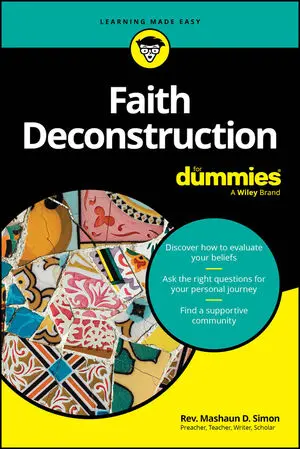The Eightfold Path of Buddhism
The Eightfold Path of Buddhism, also called the Middle Path or Middle Way, is the system of following these eight divisions of the path to achieve spiritual enlightenment and cease suffering:
-
Right understanding: Understanding that the Four Noble Truths are noble and true.
-
Right thought: Determining and resolving to practice Buddhist faith.
-
Right speech: Avoiding slander, gossip, lying, and all forms of untrue and abusive speech.
-
Right conduct: Adhering to the idea of nonviolence (ahimsa), as well as refraining from any form of stealing or sexual impropriety.
-
Right means of making a living: Not slaughtering animals or working at jobs that force you to violate others.
-
Right mental attitude or effort: Avoiding negative thoughts and emotions, such as anger and jealousy.
-
Right mindfulness: Having a clear sense of one’s mental state and bodily health and feelings.
-
Right concentration: Using meditation to reach the highest level of enlightenment.
Islam’s Five Pillars of Worship
The Five Pillars of worship provide the foundations and basic support of Islam. These fundamental acts of worship and rituals are obligations for every practicing Muslim with the hope that each pillar is a passage into deeper spirituality and understanding:
-
The First Pillar: The Shahada — Recite the shahadah correctly and deliberately: There is no god but God, and Muhammad is his prophet.
-
The Second Pillar: Salat — Pray five times a day: Pray at rising, noon, mid-afternoon, sunset, and before retiring, according to the proscribed ritual.
-
The Third Pillar: Zakat — Give alms: Each Muslim donates 2 1/2 percent of their money to others.
-
The Fourth Pillar: Saum — Observe Ramadan: This month-long fast brings the faithful closer to God and purifies earthly desires.
-
The Fifth Pillar: Hajj — Make a pilgrimage to Mecca: All Muslims should try to make this pilgrimage, or hajj, at least once in a lifetime.
Four Affirmations of Shinto
Shinto, the indigenous religion of Japan, emphasizes living with sincerity and virtue, possible only by an awareness of the divine. The fundamental beliefs in Shinto are the Four Affirmations (affirmations are positive declarations):
-
Tradition and the family: Understanding that family is the foundation for preserving traditions
-
Love of nature: Holding nature sacred
-
Ritual purity: Ritual bathing to spiritually and physically cleanse yourselves before entering a shrine to worship the kami. (In addition, festivals are held twice a year to drive out pollutants or impurities.)
-
Matsuri: Worshipping and honoring gods and ancestral spirits
People of great religious importance
All religions have important people whose teachings and lives embody the spirit of the faith and present models of faith’s promise. This chart shows the founders, teachers, and key leaders of major religions:
| Person | Role | Religion |
|---|---|---|
| Buddha | Founder of Buddhism | Buddhism |
| Confucius | Philosopher and teacher; founder of Confucianism | Confucianism |
| Guru Nanak | First guru (divine leader) of Sikhism | Sikhism |
| Jesus | Prophet and Son of God | Christianity |
| Lao-Tzu | Attributed writer of Tao Te Ching, founder of Taoism | Taoism |
| Mahavira | Spiritual leader and last of the 24 Tirthankara (Jain saints) | Jainism |
| Moses | Prophet who talked to God and was given the Ten Commandments | Judaism, Christianity, Islam |
| Muhammad | Prophet to whom God revealed the Qur’an | Islam |
| Zoroaster | Founder of Zoroastrianism | Zoroastrianism |






